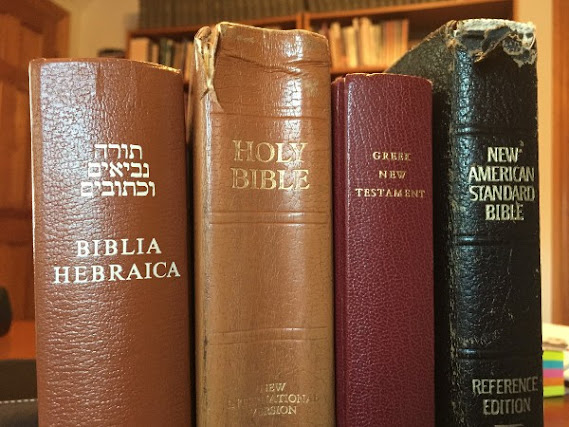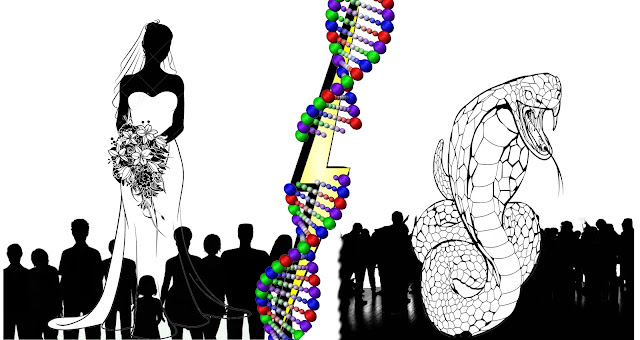A people called by His Name or upon whom His Name is invoked?
What is the translation in harmony with the context?
Simeon has fully related how God first turned his attention to the nations to make a people for his name. And with this the words of the Prophets agree, as it is written: 'After these things I will return and rebuild David's booth which has fallen; and I will build up its ruins and set it up again, that those remaining of men may earnestly seek Jehovah, together with people of all the nations, people who are called by my name , says Jehovah who does these things, known from ancient times' – Acts 15:14-18, New World Translation
«Brothers, listen to me: Simon reported how at the beginning God wanted to choose among the foreigners a people consecrated to his name. And with this the words of the prophets agree, as it is written: "After these things I will return and rebuild the tent of David, which is fallen; and I will restore its ruins and set it up again, so that the remnant of men and all the nations , on whom my name is called , let them seek the Lord, says the Lord who does these things, known to him from eternity ” – Acts 15:14-18, New International Standard
All religions, more or less, claim to be the exclusive people of God.
Some even go so far as to draw up a list of characteristics that, according to them, God's people should respect in order to distinguish themselves as such.
These "lists", however, start from a fairly trivial basic error: these are tailor-made for one's religious organization.
It is not enough to cite a scripture demonstrating this or that because the context must also be evaluated.
As an example, it is not enough to say or write “The people of God would have distinguished themselves by preaching the good news in all the earth” (see Matthew 24:14) because if this is true, one must also see who would have preached , what specifically would be preached and especially when .
In fact, several sermons have been made throughout history and, at least in words, many have claimed to carry the message of the Word of God.
Among missionaries of different confessions, although they have something in common, it is evident that they have not all brought the same message ... otherwise it would not even explain the existence of different confessions.
Some Protestant religions would object to the fact that Catholics have brought the cult of Mary to the most distant part of the earth as well as that of images.
In turn, Catholics may have to object to all these Protestant cults that are decidedly younger and with less history than them.
In fact, however, both could draw up a list of indicative characteristics of God's people, just to exclude the others, and include among these "the preaching of the good news throughout the world"….
Again, as we had already seen in several previous articles, the most important focal point of all remains the authorization, the God-given commission – compare Numbers 17:1-12; Leviticus 10:1-3
Anyone can go and preach or prophesy but not everyone who has been commissioned to do so – Jeremiah 23:21, 22
Anyone can claim to be a minister of God but not everyone can prove it – Malachi 3:18
Anyone can say they are doing things in the name and on behalf of God but not everyone will get a positive response -Matthew 7:22, 23
However, speaking of the characteristics chosen and tailored to one's religious organization, someone will cite the scripture of Acts 15:14-18 to demonstrate that it would have "bearing" His Name, or rather it should have been called by His Name.
Obviously leaving aside the fact that, in the world, there are various religions or sects that call themselves by the Name of God albeit with variants of writing and pronunciation (and on this they argue that the people of God would be the ones who pronounce it correctly... despite not having any basis for establishing the correct pronunciation of the Divine Name) does the Word of God really say this?
Does the guiding scripture of this article really say that there would be a people called by His Name or, rather, is it speaking of a people upon whom His Name would be invoked ?

Which translation is in harmony not only with the context but also with the overall Bible message?
Let's start with the first part where James says that God would bring forth a people for His Name.
The preposition "for", in this context, means "because of His Name", in "honour of His Name" or similar.
This has nothing to do with calling oneself in the same way that if someone were to say "Do it for the honor of the country" or "for the sake of justice", that would not mean having to call oneself by the name of one's country or other.
The meaning is made very clear by the New Review which speaks of "a people consecrated to his name".
Indeed James is probably quoting Isaiah 55:5 which says “ Behold, you shall call nations which you do not know, and nations which do not know you shall come to you, for the sake of the LORD , your God, the Holy One of Israel, for he will have you glorified” (the Jerusalem Bible translates as “because of the Lord your God”).
The meaning in the New World Translation is also similar in that it says… “Here you are calling a nation you do not know, and those of a nation who have not known you will run to you, for the sake of Jehovah your God, and for the Holy of Israel, because he will have beautified you."
For the sake of the Lord or for the love of Jehovah your God … the meaning does not change.
In both cases it is evident that this would not have concerned the name at all but the fact that God would have attracted them and the prompt response they would have given.
They would have approached out of love for God.
So let's move on to the second part where the scripture says, according to the New World Translation, that there would be people from all over the world who would be called by the Name of God.
Doesn't this translation feel like a custom fit?
Which "people" or organization would you like to refer to?
It is true that there are other religions that identify themselves with the Name of God, as we wrote at the beginning, but certainly only one is known in various parts of the world so this way of translating is probably not accidental.
Meanwhile we see that the New Review, the CEI/Jerusalem, the New Diodati, the 2020 Review, the Luzzi/Review, the Martini and others do not translate like this at all.
All of these speak of a people upon whom the Name of God is invoked and have nothing to do with how to call themselves or identify themselves.
As we have done so far, however, also in this case we want to see which translation is in harmony with the scriptural context and logic, not to make it a simple “ majority of translations ” speech.
We don't want to make it into a discourse of democracy or even of statistical probabilities.
So how can we establish with certainty whether James spoke of a people who would be called by the Name of God or, more simply, of a people on whom the Name of God would be invoked?
As we did for the first part, we just need to understand if Giacomo is making a quote and, if so, which one.
It will not be difficult to do a search and find that a passage from the Hebrew scriptures is also quoted here, namely, Amos 9:12.
Right in the New World Translation it is said… “that they may take possession of what is left of Edom, and of all the nations upon which my name has been called ,' is the utterance of Jehovah, which does this”.
What to say then?
Did James quote Amos 9:12 by changing its meaning, or did he quote it for what it was?
It is evident that it is not even possible to appeal to the presumed difference in translation that would pass between the Masoretic text and "the Septuagint" because the context of Amos is clear.
There we are speaking of Edom and of various geographical nations, more or less close to Israel, of which they would have taken possession.
It is evident that the Name of God would be invoked upon these nations, not that they would be called by the Name of God.
Finally the history itself of both Israel and Christians should put a gravestone on this matter.
The Israelites, while bearing the Name of God (in addition to making it known, the Levite High Priest wore the Name of God on the band around his turban) never called themselves by the Name of God.
There was no need.
Their very existence was representative of their God, since they, as offspring and nation, existed because of Him—compare Genesis 17:6, 7; Deuteronomy 30:1-5
They were obviously his witnesses , unlike the pagan peoples who acted in the name and on behalf of their false gods, but they never called themselves "Jehovah's Witnesses" or "warriors of Yahweh" or "elect of Yahuah" and in no other version – see Isaiah 40:10-12
They were known simply as Jews, seed of Abraham or Israelites.
The marriage between Israelite and Yahweh was absolutely obvious.
Likewise in the first century the followers of the Lord Jesus themselves never called themselves by the name of God.
They were first identified as “followers of the Way” and then later simply as “Christians” – compare Acts 9:2; 11:26
Peter himself used this name, showing that he accepted it, when he wrote to "glorify God in this name" - 1 Peter 4:16
Neither the ancient Jews nor the Christians of the first century ever called themselves by the Name of God and no scriptural passage or prophecy proves that those present today, in all possible and imaginable variants, are God's people.
It is not enough to use God's Name to claim membership (compare Exodus 5:2) and, indeed, using it in an instrumental way could cause us to incur greater responsibility - compare Exodus 20:7
While acknowledging that there is nothing wrong with using the Name of God, in its Hebrew or Italianized form, if done in an absolutely respectful manner, we cannot pretend not to understand and not recognize that it is certainly not respectful to force the Scriptures to make them match your religious organization.
May each of us have the right disposition of mind and heart when approaching Scripture - John 17:17
May each of us show the utmost respect for this priceless gift that the Creator has given to all mankind – Isaiah 40:8; Psalm 105:97-112



Comments
Post a Comment